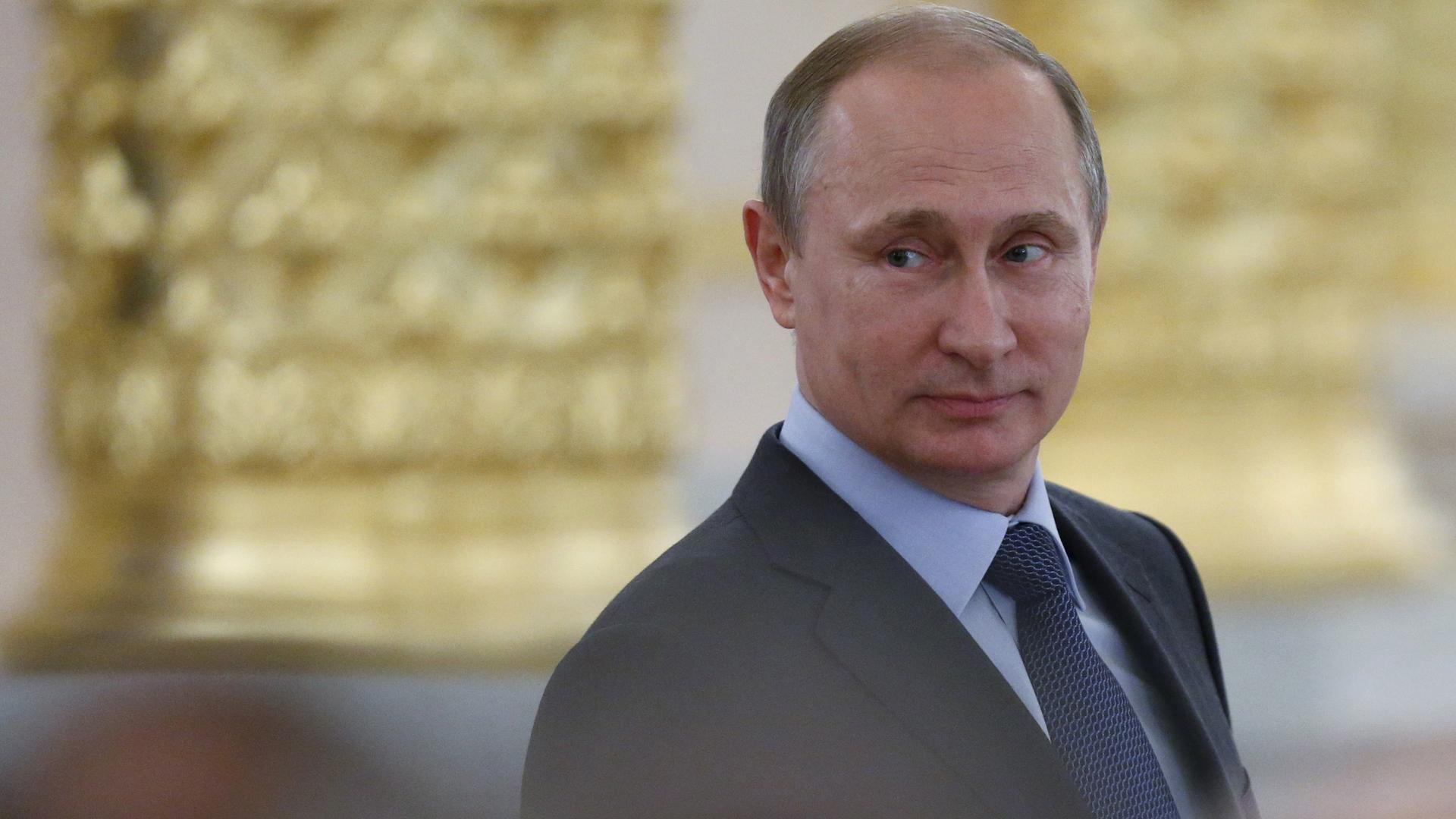The MacArthur Foundation decides to pull out of Russia, suggesting its presence there is unwelcome
Russian President Vladimir Putin attends a session of the Civic Chamber at the Kremlin in Moscow, Russia, June 2015.
The MacArthur Foundation, a prominent American non-governmental organization that has operated in Russia for more than two decades, is closing its Russia office as a result of government pressure on NGOs.
In a statement posted to the foundation's website, MacArthur President Julia Stasch said the closure was necessary given new laws that make it all but impossible to operate effectively in Russia. "The laws make it clear that the Russian government regards MacArthur's continued presence as unwelcome," according to the statement.
This past May, President Vladimir Putin approved a new law by which prosecutors can declare organizations "undesirable" in Russia and force their closure without judicial overview.
But MacArthur's problems truly heightened this month when Russia's upper house of parliament included the foundation on a list of foreign organizations it says pose a threat to Russian sovereignty.
Others on the list included the American organizations Freedom House, the National Endowment for Democracy and billionaire philanthropist George Soros' Open Society Foundation.
Suspicion of NGOs is not a new theme in the Putin era.
Putin's Kremlin has long accused the US and Europe of using NGOs to fund uprisings and revolutions in former Soviet republics, including so-called 'colored revolutions' in Ukraine, Georgia and Kyrgyzstan.
When protesters swarmed Moscow's streets in the fall of 2011 amid evidence of election fraud to keep Vladimir Putin's ruling United Russia party in power, authorities blamed the US — and foreign-financed NGOs — for fomenting the latest insurrection.
Upon Vladimir Putin's re-election to the Russian presidency in May 2012, Putin quickly took action: Russia's own NGOs were now required to register as foreign agents for receiving funding from abroad and engaging in what authorities loosely termed 'political activities.'
Several prominent civil society groups — including the respected human rights group Memorial, and the elections monitoring group Golos, among others — were quickly charged with being foreign agents.
Efforts to legally challenge the foreign agents charge — a term many Russians associate with spying and espionage — have largely proved unsuccessful.
In announcing its closure, MacArthur President Julia Stasch pointed to the continued pressure faced by the foundation's Russian partners.
"There may be risk for the Russian civil society organizations that seek and receive our funding and to the dedicated Russian citizens that work for us in Moscow," said Stasch in her statement.
Since opening its Russia office in 1992, the MacArthur Foundation says it has worked to support human rights, education and nuclear security in Russia.
The foundation's main American branch has also been a long time supporter of public broadcasting in the US, including PRI's The World.
